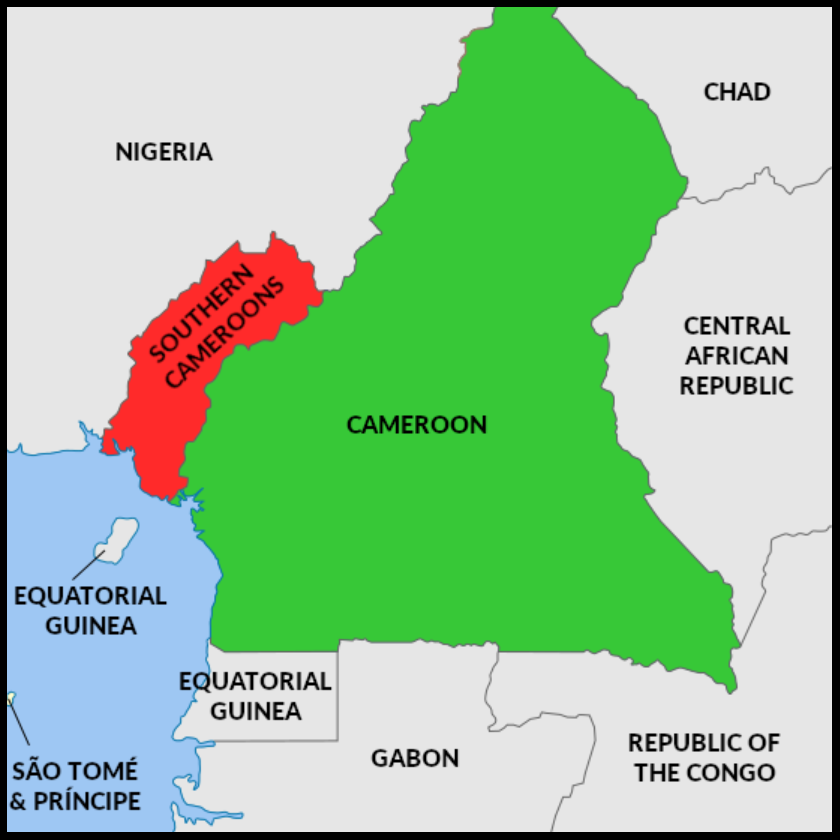The call for a national dialogue by the President of the Republic of Cameroon, His Excellency President Paul Biya on the 10th of September 2019 was embraced with mixed feelings as many doubted if it could bring a lasting solution to the crisis in the North West and South West, yet to many this was a step towards the right direction.
Barrister Nkongho Felix Agbor, Human Rights Lawyer and Founder of the Centre for Human Rights and Democracy in Africa, told Al Jazeera that “the call for an all-inclusive dialogue is very appreciated, the announcement should signal the end of arrests of Anglophones for their political ideas, whilst my expectations were not fully met in the speech, we should give peace a chance by supporting the dialogue process.
[myAds]
In a bit to foster the dialogue process 8 commissions where created, one of the recommendations made by the decentralisation commission was the granting of a special status in conformity with section 62(2) of the constitution which stipulates that “the law may take into consideration the specificities of certain Regions, with regards to their organisation and functioning”.
The questions that has gained grounds is what a special status is and what privileges will this regions enjoy with the special status granted and what recommendations can be made to that effect?
[myAds]
To fully understand the concept of special status, it is incumbent to draw references to other states that have been awarded a special status. Some of these states include Kashmir, Quebec, Hong Kong and a host of Indian states. However for the purpose of this study Quebec (Canada) will be the benchmark because of the similarities it shares with Cameroon.
Special status is a method used historically to deal with Quebec’s distinct culture and a formula proposed since the 1960’s by which Quebec would be given further special considerations and powers so that its distinct culture could be protected and developed while continuing to be part of the Canadian federal system. At various stages of its history, the authorities governing Canada have explicitly recognised that Quebec “is not a province like the others” and thus was accorded special constitutional protection.
[myAds]
The special character of Quebec was consecrated in several articles of the Constitution Act of 1867. It was at Quebec’s insistence that federalism was adopted, thus enabling French Canadians to control fully the government of a province for the first time. The federal system took care of most of the fears that the francophone and Anglophone minorities might have had; francophone were worried about the minority position which they were to occupy in the federal government, while the Anglophone minority in Quebec were anxious about the prospect of living in a province which would be dominated politically by French Canadians. In this respect, Quebec obviously stood out and several articles demonstrated its special position to which Cameroon could emulate.
Recommendations For The Special Status Granted To The English Regions.
[myAds]
- Management of the educational systems at the regional levels for Anglo-Saxon education.
- Mandatory English Proficiency for Magistrates working in the English speaking regions.
- An autonomous budgetary system for the two English Speaking Regions.
- Regional councils should be granted full autonomy and the appointed government representative (which should succeed the post of Governor) should only play a supervisory role.
- The House of Chiefs should be reinstated and giving it an advisory role at the regional councils.
- A seaport project should commerce in Limbe
- The University of Buea and Bamenda and their related institutes like ENSET should remain purely Anglo-Saxon with Lecturers of English trained system of education only.
- Public and Para public establishments and corporations in these regions should be headed by Anglophones
- Setup a law school for the training of Barristers at Law ( one Law school with French and English sections)
- Some of the rights granted under the special status should be enshrined in the constitution to give it the severity it deserves.
By: Tonga Benjamin Mekinde
Doctorate Student University of Buea (International Human Rights Law)
Human Rights Officer (Centre for Human Rights and Democracy in Africa)
